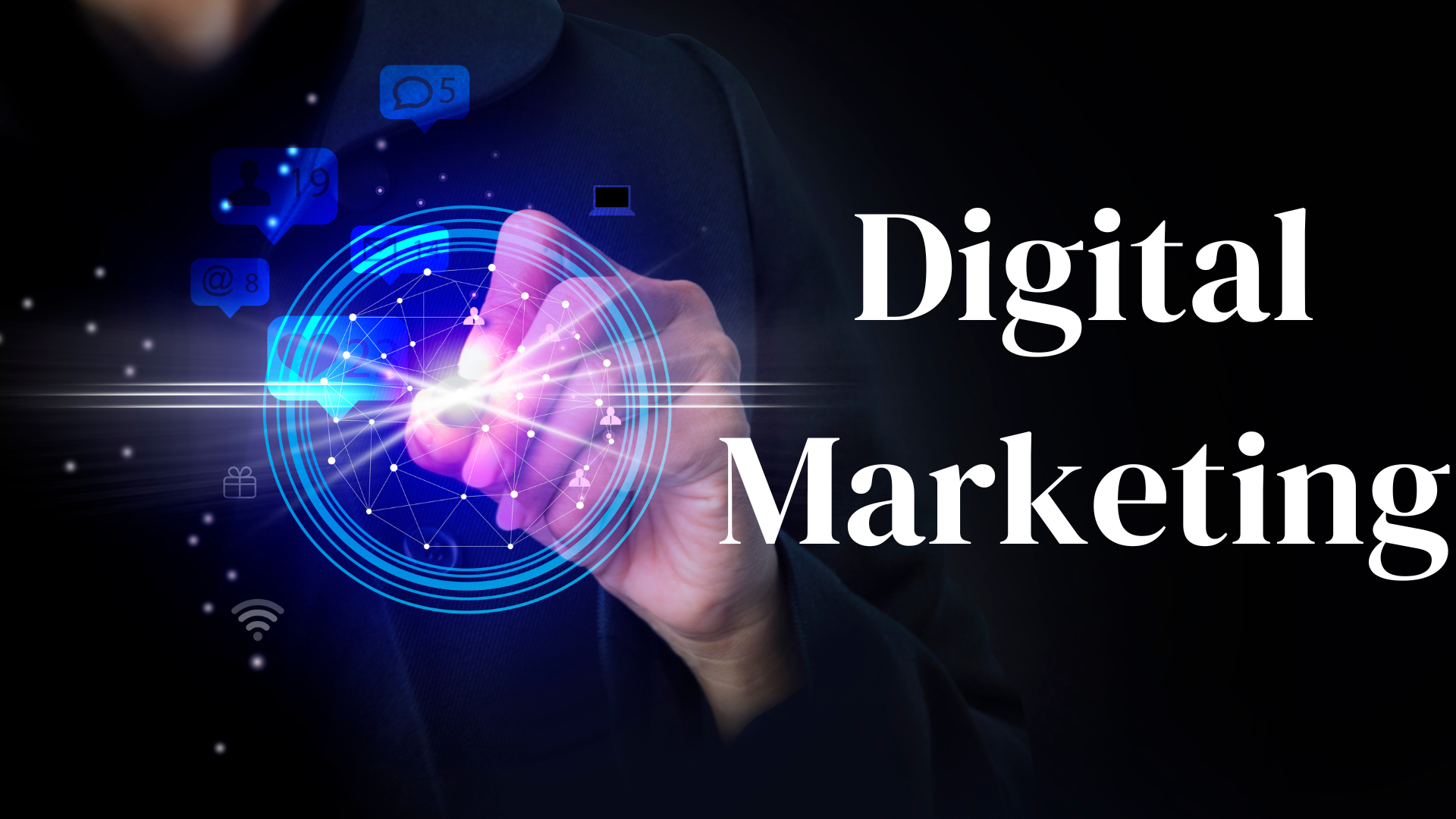What if we tell you the stunning way to improve your business visibility and boost brand awareness in today’s digital age?
It’s none other than digital marketing. Digital Marketing is known as the booming process that helps businesses manage a strong online presence and engage with consumers in a personalized way. Let’s dig deep into this marketing strategy and know how to turn your digital dream into reality. It brings new opportunities for small and large businesses to boost brand visibility, reach broad-spectrum audiences, drive web traffic, and generate more leads.
Overall, digital Marketing offers businesses an effective toolset to connect with their intended consumers, and ultimately achieve their marketing objectives and business goals in a measurable way. Due to the extensive growth of the internet, Digital Marketing holds remarkable importance that changes the way people and consumers interact with business and user information. Digital Marketing is a noteworthy platform that helps you to meet your digitally savvy consumers, maximize the benefits of the online world, and adapt to the ever-evolving industry.
As technology continues to influence consumer behavior, the use of digital marketing becomes not only a choice but a crucial strategic requirement for long-term growth and profitability.
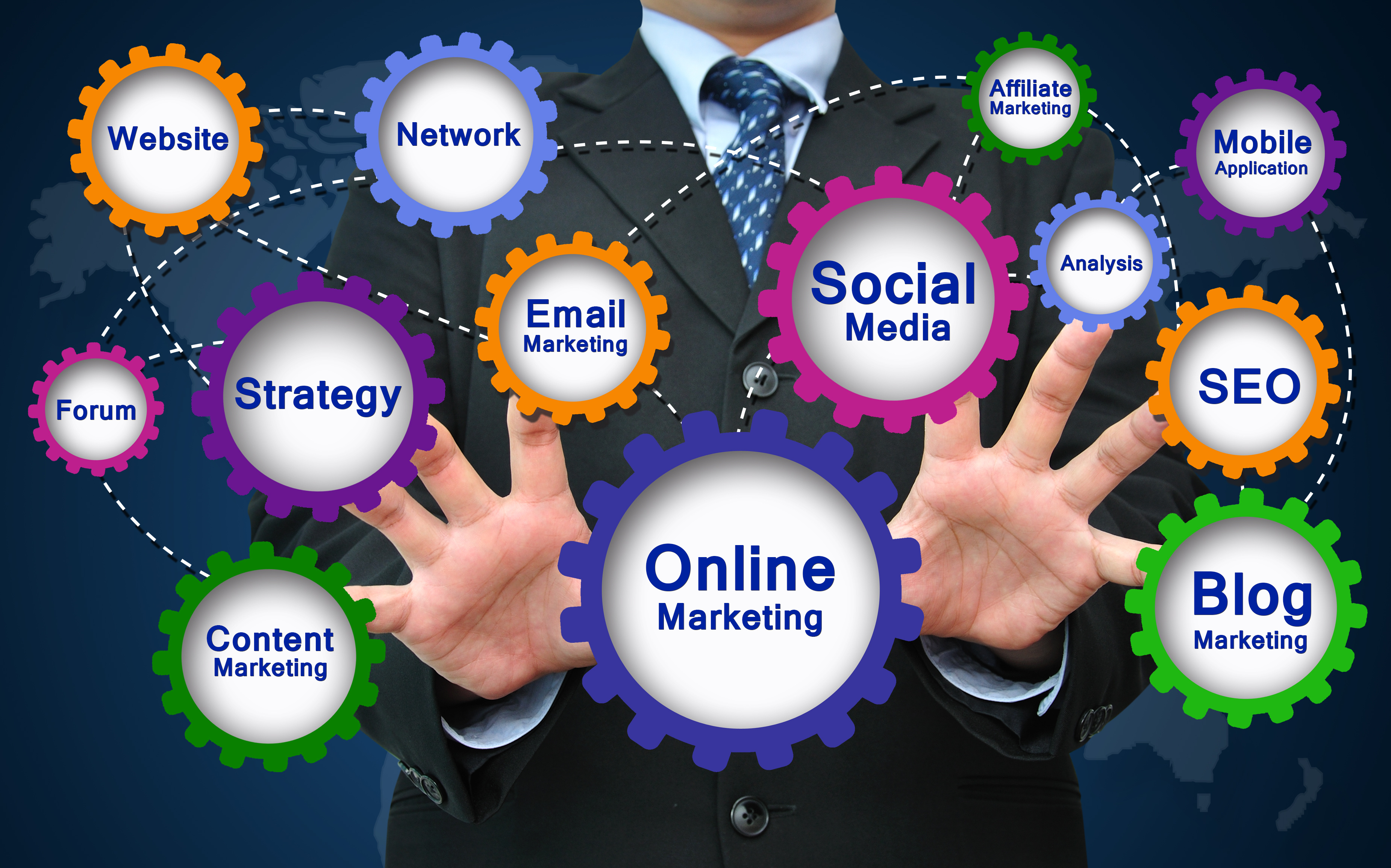
5Ds of digital marketing:
- Digital device
- Digital platform
- Digital media
- Digital data
- Digital technology
These 5Ds are crucial and favorable in encouraging effective engagement between the brand and its targeted audience.
Every business must step into digital marketing tactics to establish global reach, gain engagement with their targeted audience, stay ahead in the competitive edge, lead generation, and much more. It is a rewarding strategy that holds promise to ensure better brand visibility and higher return on investment.
What is Digital Marketing?
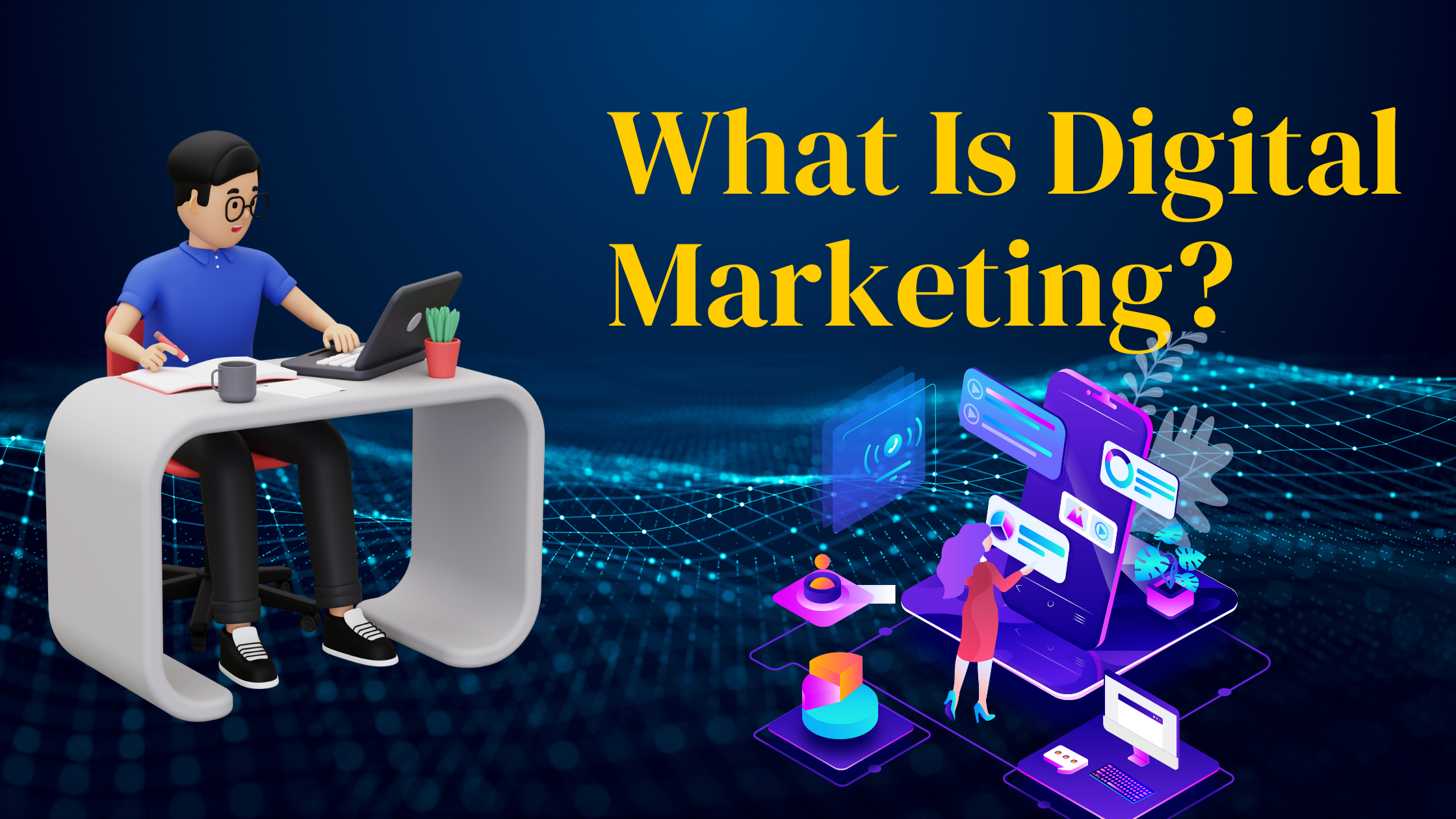
What is digital marketing?
Digital marketing also refers to online marketing which is a process of promoting your products and services to the desired audience through 5Ds. It’s an easy way to communicate with your intended audience, gain brand loyalty, and reputation, and generate leads consistently. This marketing strategy encompasses broad-spectrum marketing tactics and technologies that are used to seize wider consumers worldwide.
Online marketing or digital marketing can be a nice option for organizations wishing to capture brand reputation, awareness, and loyalty in cost-effective and optimum ways. This is a worthwhile program that has a long-term impact on expanding your business reach and enhancing consumer engagement and satisfaction.
Igniting your digital presence is imperative to have a strong brand identity and boundless business growth.
Compared to Digital Marketing, Inbound Marketing

Comparison between digital marketing and inbound marketing:
Both marketing strategies can be used interchangeably, but are completely different from each other.
Features | Inbound Marketing | Digital Marketing |
Main focus | Sieze potential users and provide value. | Gaining brand recognition with paid and unpaid channels. |
Dynamics | Content creation and establishing relationships with consumers. | It uses several channels like search engine marketing, SMM, and email advertising. |
Goals & objectives | Boost lead generation, wider audience, and brand identity. | Generate leads, increase web traffic, and boost sales. |
Cost | Effective than traditional marketing tactics. | Cost-effective and expensive. |
Inbound marketing is for companies that seek to develop relationships with customers, whereas digital marketing is a more general phrase that includes both outbound and inbound techniques.
Inbound marketing is a part of digital marketing that prioritize engaging consumers through valuable creation. Digital Marketing, conversely, constitutes a wide range of activities including inbound and outbound strategies, and focuses on relationship building.
Why is Digital Marketing Important?
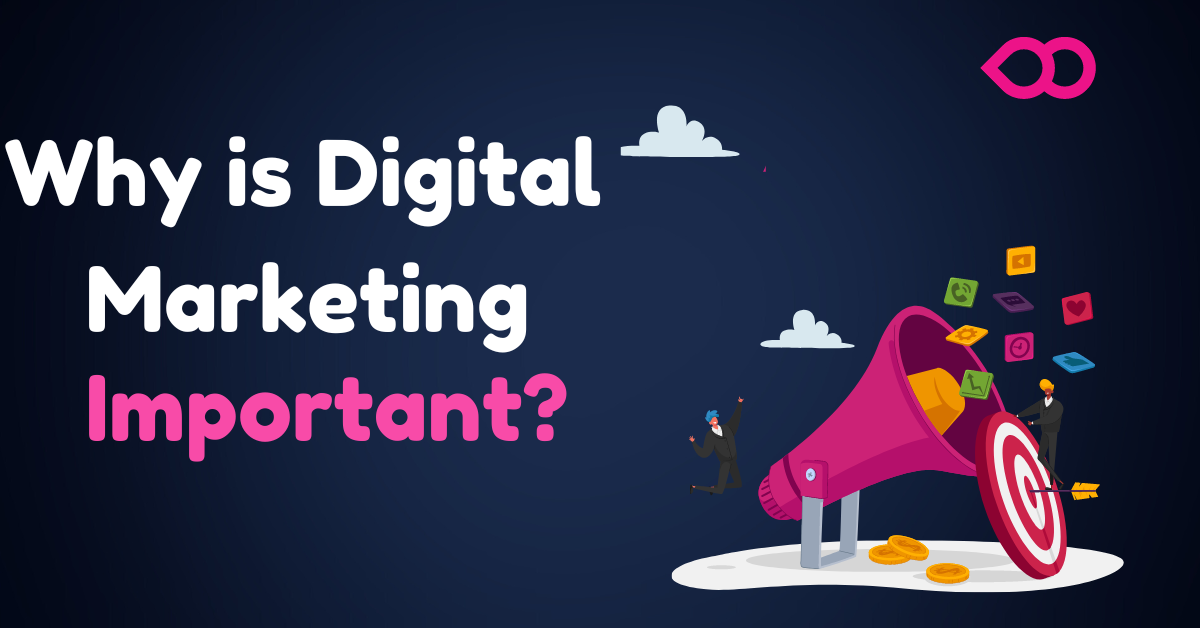
Why is digital marketing important?
Digital Marketing is a platform that incorporates various strategies to increase your brand recognition and establish a global reach. Isn’t it rewarding for your business?
Whether you run an established business or start-up, you need online marketing tactics to become visible to your intended audience and gain the brand’s notoriety. Digital marketing help every business to expand its market reach beyond traditional boundaries. It also assists to attain measurable results in real time, fostering strong relationships with the interested audience.
In today’s digitally connected world, it is impossible to overestimate the value of digital marketing. It is a crucial tool for companies seeking to compete successfully in the modern marketplace since it can offer firms a worldwide reach, affordable solutions, data-driven insights, and focused engagement.
B2B versus B2C Digital Marketing
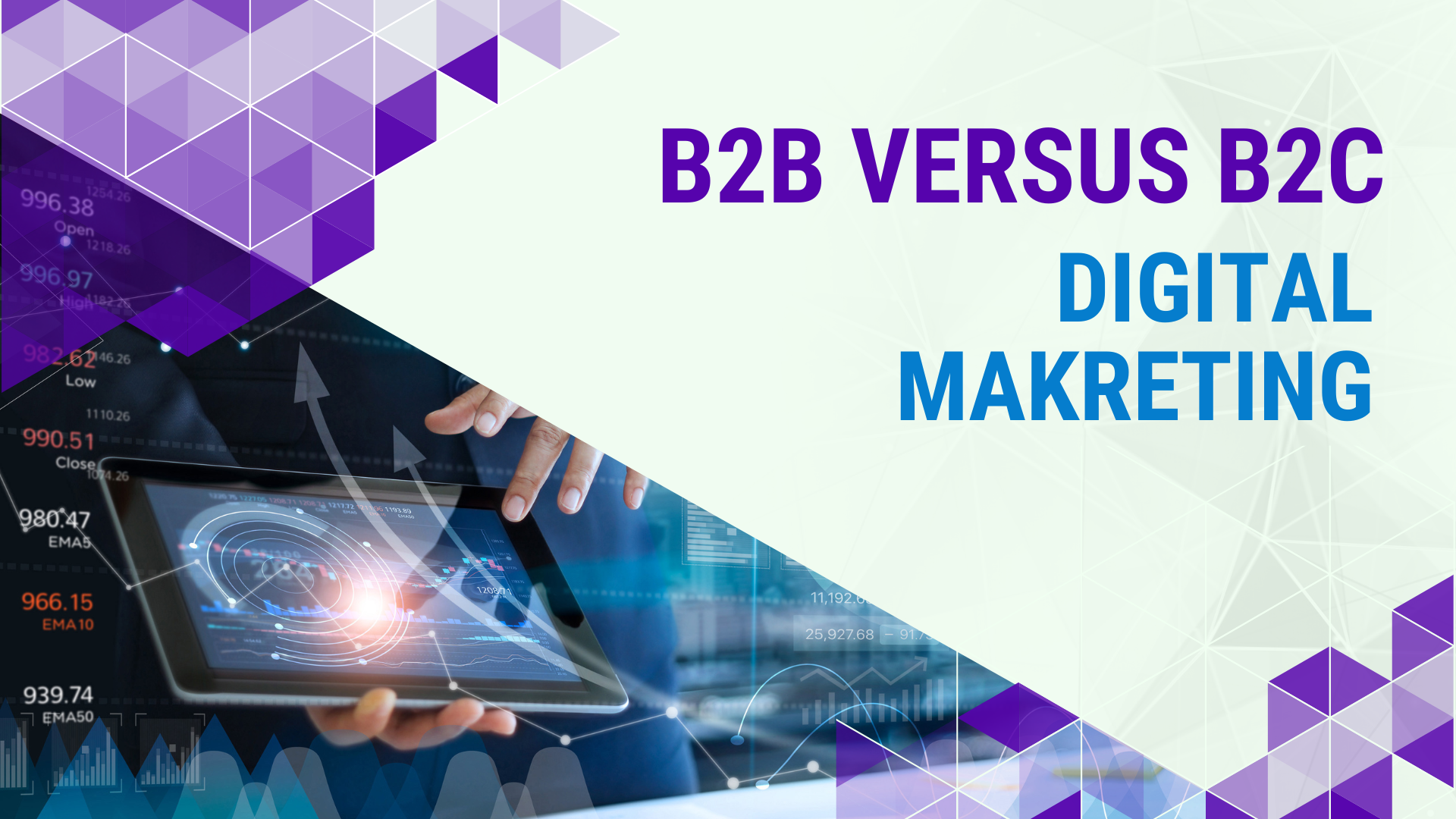
B2B versus B2C digital marketing
The marketing of goods and services to customers is done in two different ways: B2B (business to business) and B2C (business to consumers). Both approaches involve digital channels and strategies, but there is a significant difference due to the target audience, purchasing process, and goals.
Let’s understand the below comparison:
Target audience
- B2B: Businesses and professionals who are in charge of making purchasing decisions on behalf of their companies make up the target audience in B2B marketing. Dealing with various decision-makers and influencers is frequently required in this.
- B2C: B2C marketing focuses on the requirements, preferences, and emotions of specific customers.
Lead generation
- B2B: B2B lead generation emphasizes developing connections and giving useful information to win over potential customers’ confidence and credibility.
- B2C: Through promotions, discounts, and limited-time offers, B2C lead generation frequently seeks to pique immediate interest and encourage impulsive purchases.
Sales
- B2B: The sales cycle for businesses is typically lengthier and more complicated. Making decisions includes giving them significant thought, going through several steps, and getting agreement from various parties.
- B2C: B2C sales cycles are typically shorter, and buying decisions are frequently motivated by feelings and urgent requirements.
Content approach
- B2B: Content geared toward businesses tends to be more in-depth, instructional, and concentrated on offering answers to challenging business issues. Common content formats include whitepapers, case studies, webinars, and technical manuals.
- B2C: B2C material frequently focuses on visuals, entertainment, and emotional appeal. It seeks to establish a personal connection with customers and attend to their lifestyle requirements.
Types of Digital Marketing
The most common types of digital marketing are broadly divided into the following primary categories, each of those are briefly described below.
1. Search engine optimization
The goal of search engine optimization (SEO), a complex digital marketing strategy, is to increase a website’s or online content’s exposure and relevancy in search engine results pages (SERPs).
In an online globalized environment, where search engines are the main gateways to products and services, SEO is crucial in assisting organizations and people in reaching their target marketing objectives. This complex procedure entails tailoring a website’s content, architecture, and HTML code to conform to the formulas used by search engines for indexing and ranking sites.
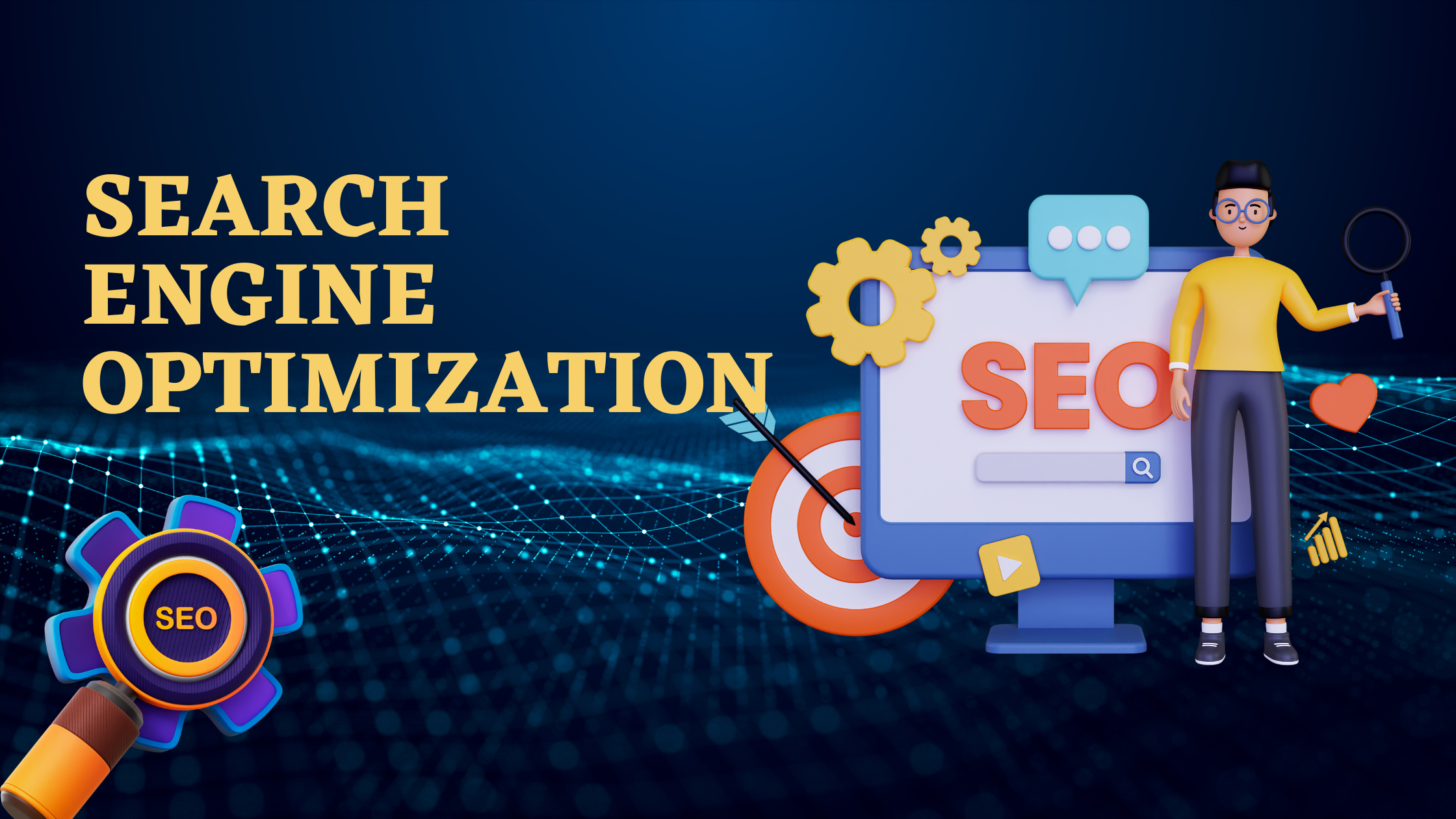
It has been studied that SEO boosts a site’s organic (non-paid) search rankings, leading to improved visibility and, ultimately, increased organic traffic. It does this by pertinent keywords, speeding up the site, improving the user interface, and cultivating authoritative backlinks.
Effective SEO tactics require ongoing monitoring, evaluation, and modification updated with changing user trends and search engine algorithms.
2. Content Marketing
The planning, production, distribution, and analysis of content across several channels constitute the strategy known as content marketing.
It can enhance brand recognition, client retention, and eventually conversions by serving as a means of educating, entertaining, and informing the audience. In order to offer valuable content that connects with the customer’s requirements and preferences, successful content promotion involves a thorough grasp of your intended viewers and a clear brand voice.

Building a solid and meaningful relationship with the audience by providing them with unique and engaging content is the main goal of content marketing.
This content can be presented in a variety of formats, including blog entries, articles, podcasts, videos, infographics, and social media posts. Appealing content keeps the consumer engaged with the brand and it helps businesses attain brand loyalty.
3. Social Media Marketing
In the entrepreneurship world, a number of strategies have jigged out to help increase business revenue, reach your clients/ consumers, and expand your business brand. Social Media Marketing is one of the most global phenomena that help businesses to attract millions of followers.
Social Media has gained booming success and the latest buzz for new start-ups. It’s an easy and handy way to maximize your business potential and gain tremendous success around your global audience.
Nowadays, Social media is becoming an integral part of everybody’s life. With the help of different social media aspects, new business brands can simply beat their competitors and achieve their business objectives.
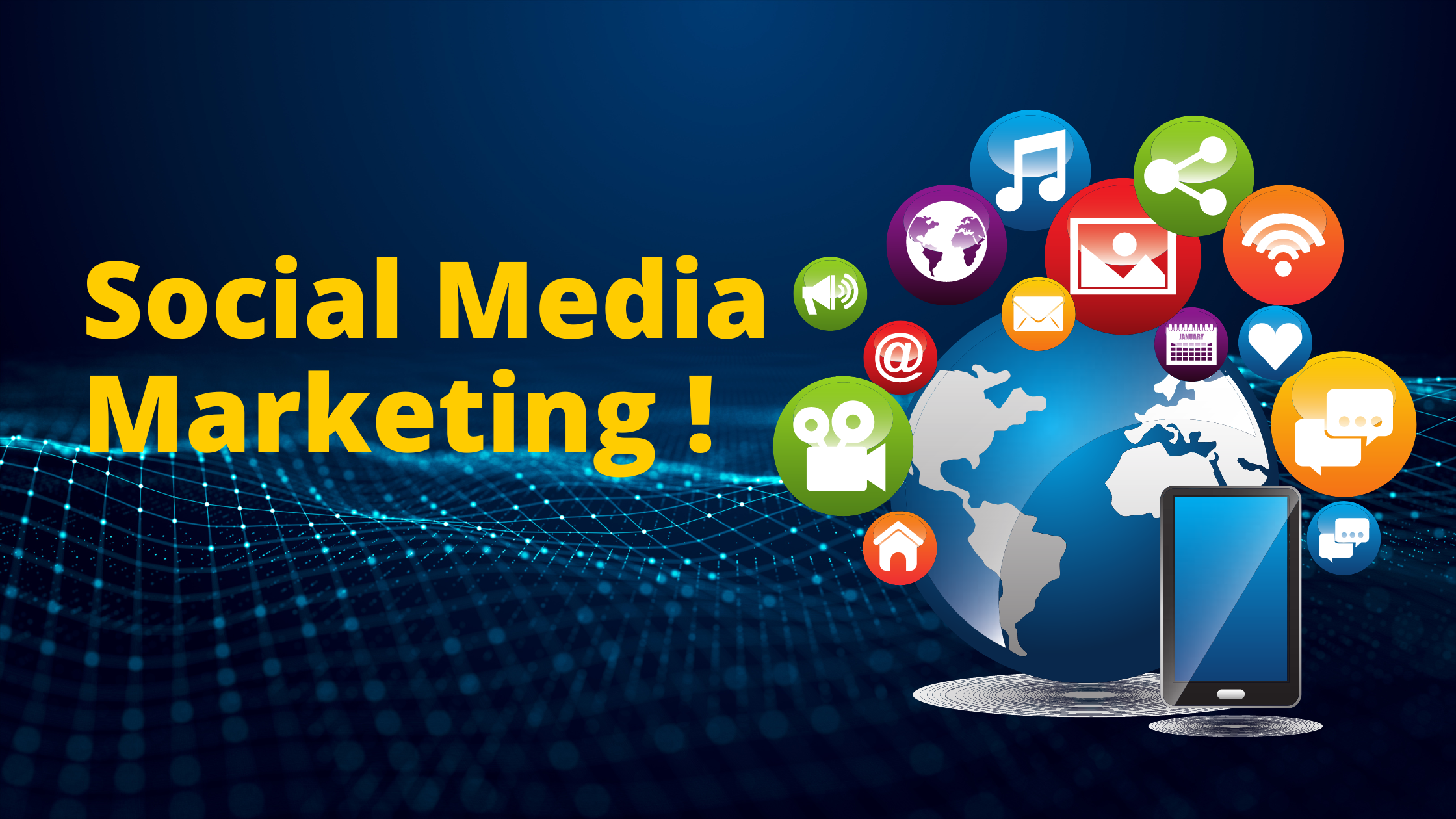
Social advertising is a convenient and right tool for emerging businesses. At present, many top business brands are managing their digital profile with various social media marketing tools.
Small businesses and marketers are well aware of the effects of digital media and use its effective tools to adopt new digital trends which result in promoting sales and increasing loyal followers.
To make your brand more visible, social media marketing is the best digital marketing tool that provides the best business-improving results in no time. This strategy is profitable for both start-ups and large businesses.
4. Pay-per-click Marketing
In the pay-per-click (PPC) advertising approach, marketers are charged a fee each time a user clicks on one of their ads. It’s a technique for bringing in targeted visitors to websites, and it’s especially well-liked on search engines and other online platforms.
Search engine advertising, in which marketers place bids on particular terms relevant to their target market, is the most popular type of PPC advertising. The adverts show up at the very top of the search results when people use certain keywords, and advertisers only get paid when someone clicks on their ad.
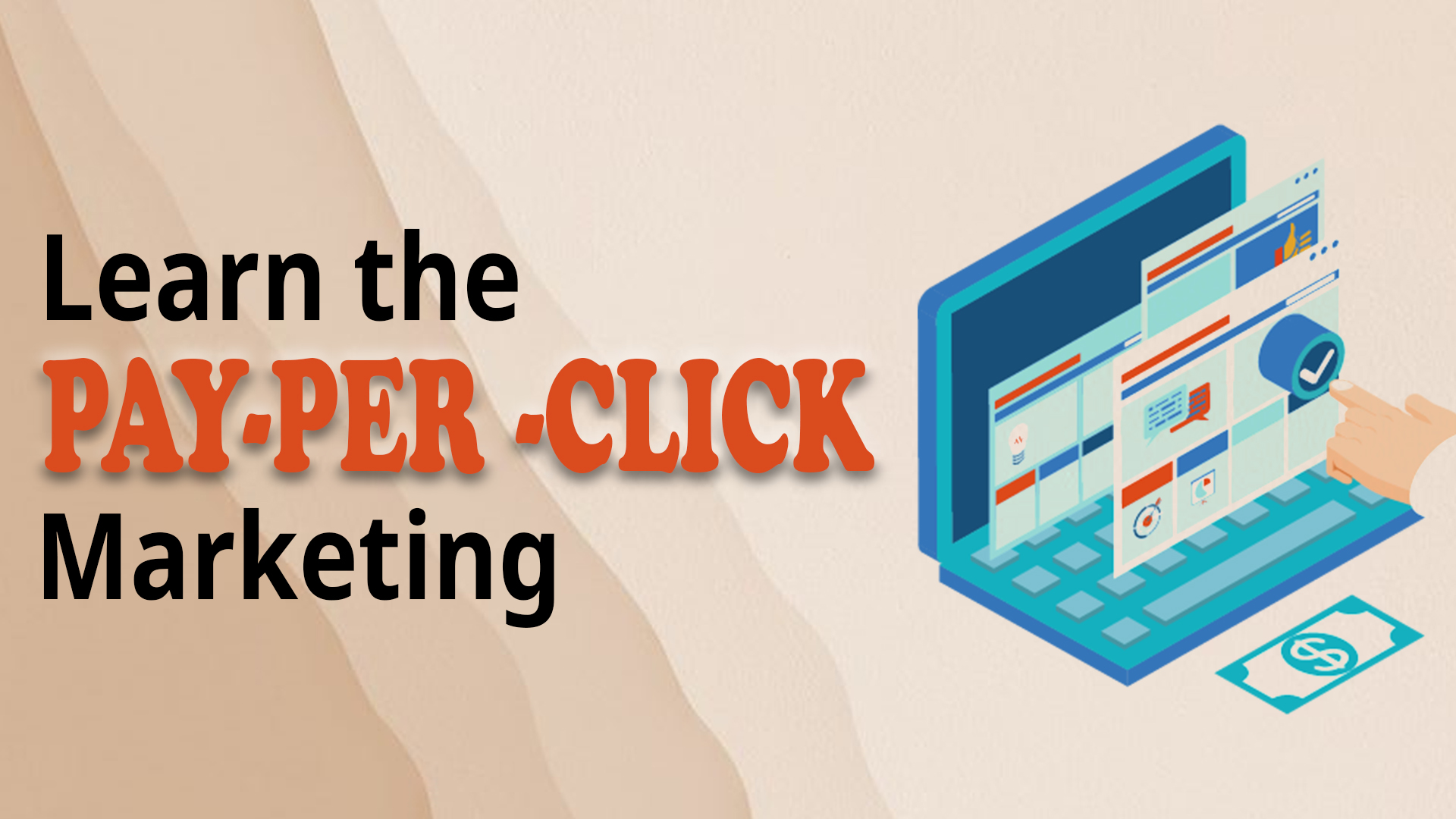
Google AdWords displays ads to users based on their searches and demographics, as well as social media sites like Facebook, Instagram, and LinkedIn, which are popular PPC advertising platforms.
For PPC campaigns to be as effective as possible, careful planning, keyword research, appealing ad copy, and attractive landing sites are important. Continuous campaign optimization, analysis, and monitoring are necessary to improve performance over time.
5. Affiliate Marketing
To promote products or services, individuals, bloggers, influencers, and website owners work together through the dynamic online technique known as affiliate marketing. Affiliates use numerous platforms, including social networking sites, websites, and email promotions, as well as their internet presence and marketing expertise to introduce possible clients to the advertiser’s offerings.
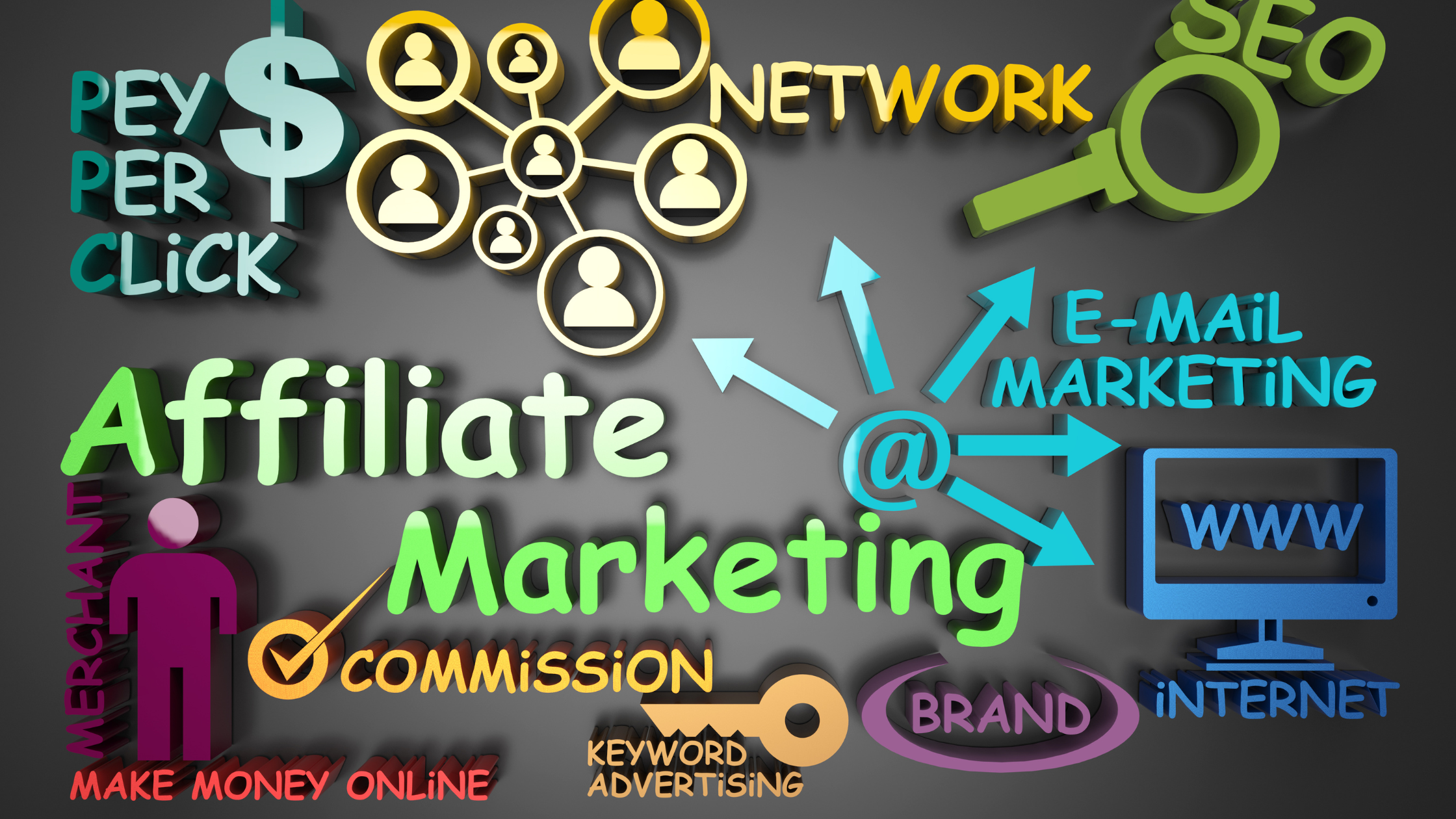
Affiliates receive compensation for each successful sale, or other action resulting from their work in the form of a commission. Both parties gain from this performance-oriented strategy: advertisers increase their reach without incurring upfront fees, and affiliates have the chance to monetize their audience by recommending goods they firmly believe in.
Affiliate marketing has evolved into a crucial channel for companies to boost sales and for people to establish revenue streams by utilizing their online influence and expertise.
6. Native ad placement
The strategic integration of advertising content into a digital platform in a way that closely mimics the platform’s regular, non-promotional content is known as native ad placement.
The goal of native ad placement is to minimize the disruptive behavior frequently associated with traditional display ads by making advertisements seem as natural and fluid as possible for the user experience.
The advantages of native ad placement:
- High engagement rates
- An enhanced user experience
- Better brand reputation
When done right, native advertisements can benefit users by supplying useful content, entertainment, or solutions along with conveying a business message.
In a nutshell, native ad placement is a smart strategy for businesses to reach their target market while respecting the web space where their ads are shown.
7. Influencer Marketing
Brand ambassadors, affiliate partnerships, giveaways and contests, and sponsored content are all forms of influencer marketing.
It is a modern marketing tactic that entails working with people who have a sizable and active internet following, or influencers. These influencers have developed trustworthiness and authority in particular industries or sectors, and they use their online visibility to market products, services, or brands to their audience.
This marketing tactic has gained recognition due to its potential to interact with the intended audience in a more relatable manner. It requires a keen and careful selection of influencers who effectively align with your intended audience and brand’s value. It helps in creating a harmonious partnership that resonates with the audience.
8. Marketing automation
The term “marketing automation” describes the use of technology and software to streamline and automate certain marketing procedures. It entails using platforms and technologies that give firms the ability to more successfully plan, execute, and evaluate their marketing efforts.
Email marketing, nurturing leads, social media planning, segmenting clients, campaign tracking, and many other tasks fall under the umbrella of marketing automation.
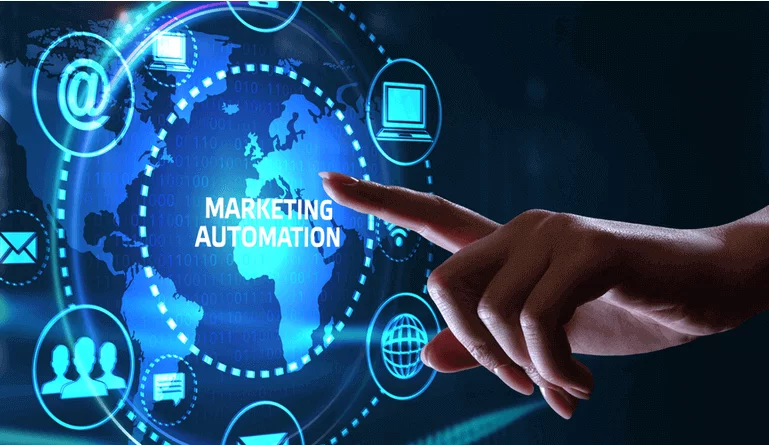
CRM systems and marketing automation software frequently work together to provide businesses with an in-depth understanding of their leads and customers as well as insights that can help them make decisions.
Marketing automation enables companies to engage customers with pertinent information, nurture leads, and eventually improve the entire customer experience.
9. Email marketing
It is termed as sending promotional emails to the target audience to inform them about your upcoming events, products, services, and new launches. It’s an easier way to stay engaged with the consumers and keep your desired public updated about your business offerings.
Developing engaging and unique emails, dividing the audience based on their interests and behaviors, producing appealing emails, and optimizing them for various platforms are all necessary for successful email marketing.

Additionally, email marketing includes analytics tools that let business owners monitor campaign performance metrics like open rates, click-through rates, and conversion rates.
When managed effectively, email marketing may be a low-cost and successful approach to increase brand recognition, foster customer relationships, and boost revenue.
Benefits of Digital Marketing
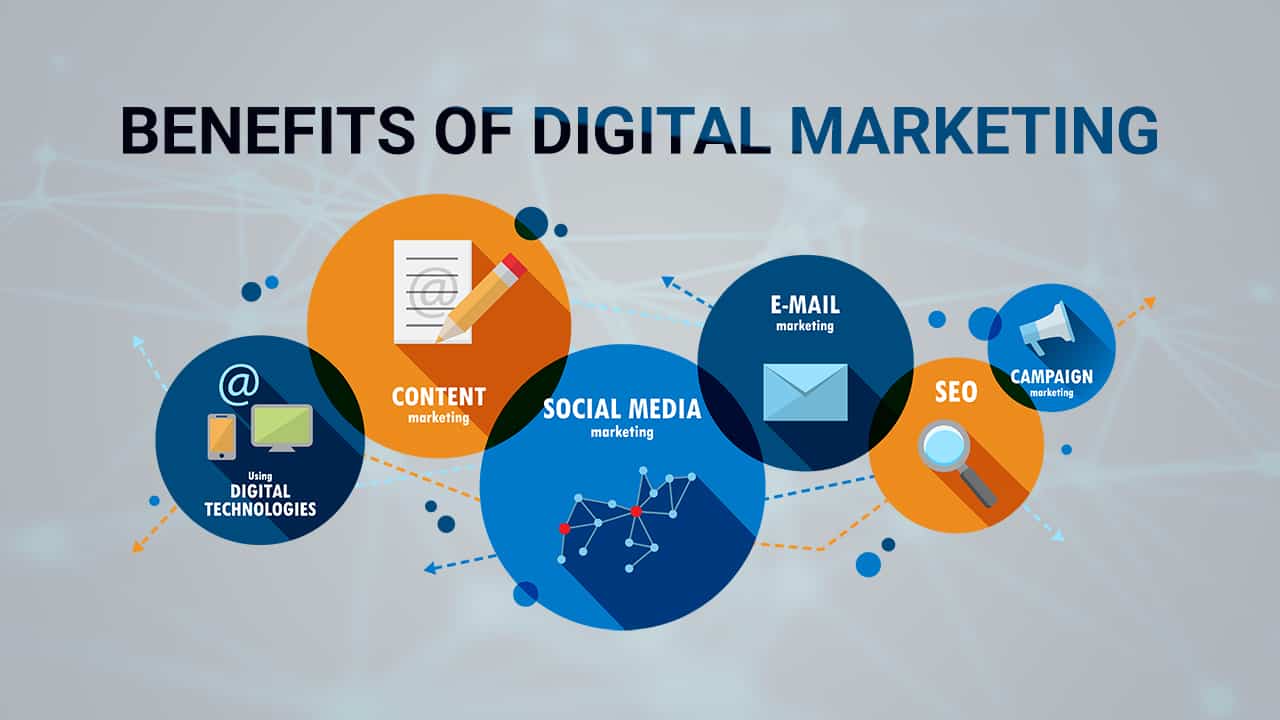 Due to the wide potential of digital marketing, it has come into vogue and become a trend in the IT sector. Along with revamping your business growth, it provides incredible benefits that help you climb the ladder of business success and thriving online presence.
Due to the wide potential of digital marketing, it has come into vogue and become a trend in the IT sector. Along with revamping your business growth, it provides incredible benefits that help you climb the ladder of business success and thriving online presence.
A broad geographical reach
No doubt, global reach is a key benefit of digital marketing. Digital channels including websites, social media, search engines, and email help firms to reach a global audience right away.
Digital marketing crosses borders, allowing firms to reach potential clients in other countries and regions, in contrast to traditional marketing techniques. This wide-ranging reach offers chances for brand exposure, client involvement, and sales growth on a worldwide scale.
Businesses may reach audiences everywhere in the world using digital channels such as websites, social media, and email campaigns, regardless of where they are physically located.
Cost efficiency
Looking for cost-efficient marketing options? Digital marketing is the optimum advertising strategy. Digital marketing is more cost-effective than other conventional marketing techniques like print ads, or television advertisements.
This data-driven strategy guarantees optimal resource allocation, enabling companies of all sizes to compete successfully in the market without needing significant financial resources. This is a budget-friendly tactic that surely bring amazing success to your business and ensure global recognition.
Quantifiable results
Businesses may analyze and evaluate many parts of their campaigns thanks to the extensive and real-time analytics offered by digital marketing.
A comprehensive grasp of the return on investment (ROI) is made possible by the ability to measure results, which also makes it possible to make continuous advancements.
In the end, the quantifiable nature of digital marketing enables companies to precisely evaluate the effects of their marketing efforts, resulting in more effective campaigns and increased overall marketing success.
Easier personalization
The simplicity of personalization in digital marketing helps to forge closer bonds with customers, promote brand loyalty, and ultimately increase marketing efforts’ efficacy.
By enhancing interactions and making them more pertinent and interesting, this level of personalization improves the customer experience.
More connection with customers
Digital marketing help business stay connected with their intended audience through digital channels like social media, email campaigns, live chats, and engaging content. This helps in fostering a strong relationship with the targeted audience and capturing global reach. By actively participating in digital conversations, businesses can gain insights, understand consumer choices, and drive results according to their consumer’s preferences. Moreover, this also includes feedback, suggestions, and relationship-building.
Easy and convenient conversions
Digital marketing tactics are made to make it easier for customers to complete desired actions, like completing an order, registering for a newsletter, or completing a form, by guiding them smoothly through the conversion process.
Digital marketing encourages a greater conversion rate and favorably affects a company’s bottom line by enhancing user experience and making the conversion process as simple as feasible. This convenience-focused strategy is especially profitable in this fast-paced digital environment.
We sincerely hope that this article will be helpful for folks interested in digital marketing concepts.
.Automated email marketing
.Best-email-marketing-services
.Best email marketing services
.Email-marketing-software
Related concepts to explore:
- Learn the Pay-Per-Click Marketing
- What Is Affiliate Marketing?
- Top 5 WordPress Security Plugins for Website
- Top 5 WordPress Themes
- Top 10 Domains providing Company
- Best Hosting Provider
- Top 5 Plugins For WordPress
- What Is SEO – Search Engine Optimization?
- What is PPC?
- https://www.facebook.com/stc.technical.world/
- https://www.instagram.com/stc.technicalworld/
- https://www.linkedin.com/in/technical-world-21b972259/
